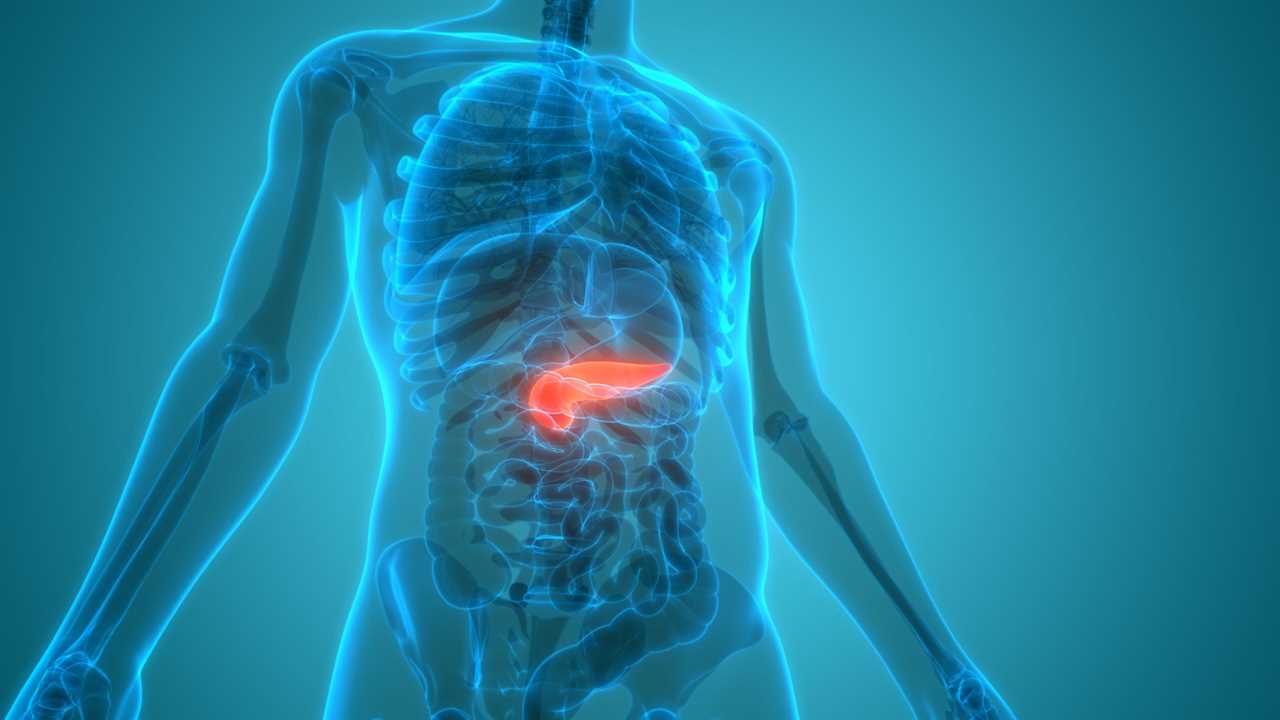SCIENTISTS have found a new way to tackle the deadliest cancer by blocking its energy supply.
The Institute of Cancer Research in London discovered that pancreatic tumours can “switch their diet” to feed off a chemical called uridine if they run low on sugar.

Pancreatic cancer is the deadliest form of the disease in England
Developing drugs to starve them of the vital fuel source could improve treatment and boost survival.
Pancreatic cancer has the highest death rate in England, killing nine in 10 patients within five years.
Around 10,500 Brits get it each year and there are 9,600 deaths annually.
Celebrity victims include actors Alan Rickman and Patrick Swayze.
Experiments on mice found that switching off a gene called UPP1 could prevent pancreatic tumours from turning uridine into energy.
When scientists did this it “largely halted tumour growth” in the animals.
They hope the same tactic will work in humans and that it could also tackle other types of cancer including lung, stomach and brain.
Professor Kristian Helin, chief of the Institute for Cancer Research, said: “People with pancreatic cancer often face a bleak prognosis so there is an urgent need for new advances to help treat this aggressive disease.
“It is exciting that this new study has found that pancreatic cancers can switch their diets and may become dependent on a particular back-up fuel.
“We hope we can take advantage of this to find ways to treat the disease more effectively.”
Uridine is made naturally in the body and is used to carry genetic information and maintain a healthy metabolism and brain function.
Writing in the journal Nature, scientists said they found cancer patients had worse survival if they had large amounts of the UPP1 enzyme that breaks uridine down into sugar.
Study co-leader Dr Costas Lyssiotis, from the University of Michigan, added: “These very exciting findings open up new avenues for treating a cancer that currently lacks effective treatment options.
“We can target the fact that pancreatic cancer cells can become dependent on uridine for their growth and survival.”
Dr Chris Macdonald, head of research at Pancreatic Cancer UK, said: “This work is hugely novel, potentially very impactful and genuinely exciting.
“We are very hopeful that these findings could lead to new and improved treatments for pancreatic cancer in the future.”






